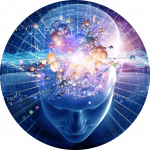As mental health issues rise, doctors, scientists and patients are beginning to eschew anti- anxiety and antidepressant medications. Instead, complementary therapies such as meditation and mindfulness are being recommended for mental health concerns.
Additionally, a growing number of clinical trials are exploring the use of psychedelics such as psilocybin (from magic mushrooms) and nightclub drugs such as MDMA and ketamine are being prescribed for depression and PTSD with surprisingly promising results. Clinical trials suggest that drugs once taken by hippies and club kids might have positive benefits for mental health.
Neuroscientists argue that these drugs encourage neuroplasticity — a kind of brain flexibility thought to stave off mental health issues. Studies suggest that certain kinds of beliefs and experiences are linked to better mental health.
Psychedelic drugs currently being studied to benefit mental health:
Ketamine, the club drug and tranquilliser is being tested for treating of depression. In March 2019, the US Food and Drug Administration approved a nasal spray version of the drug. Ketamine works much more quickly than traditional antidepressants, and scientists believe it encourages new neural connections that help overwrite unhealthy, depressive thought patterns.
Psilocybin, the active ingredient in magic mushrooms is a powerful hallucinogen, but it acts far more quickly than traditional drugs and is being analysed for use in patients with both depression and PTSD. Psilocybin helps encourage neuroplasticity and is thought to quieten the ‘default mode network’ in the brain and activate the ‘salience network’ involved in medication. The FDA cleared the largest clinical trial yet for psilocybin.
MDMA, the favourite drug in nightclubs has also been trialed as a treatment for PTSD. MDMA seems to quieten activity in the amygdala and hippocampus regions of the brain involved in emotional processing and fear responses which are over-active in those afflicted with PTSD. Patients participating in MDMA trials are given a dose of the drug in an eight-hour session supervised by two therapists who guide their experience.
LSD, the psychedelic hippie drug, has a similar structure to the brain chemical serotonin. LSD’s discovery played a role in the discovery of how serotonin works in the brain and why imbalances of the neuro-chemical are involved in depression and anxiety. Trials using LSD- assisted therapy to treat anxiety are ongoing and have shown promise.

